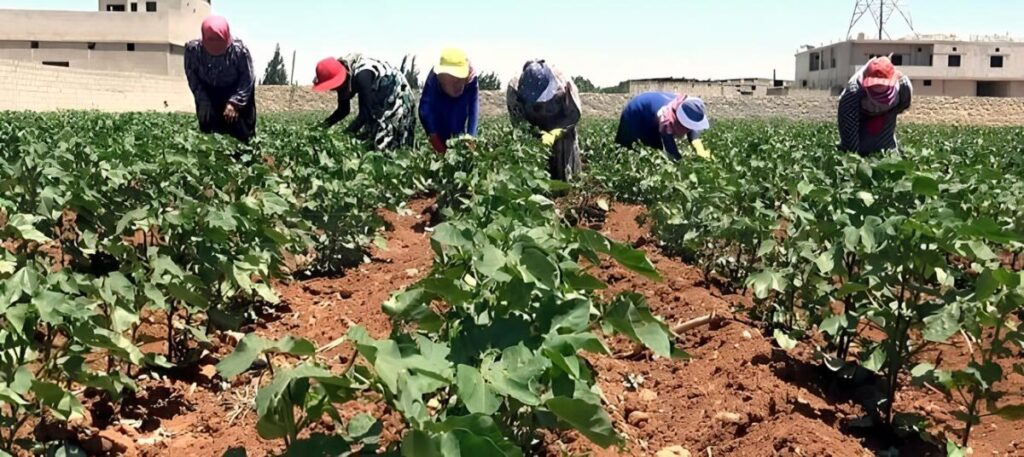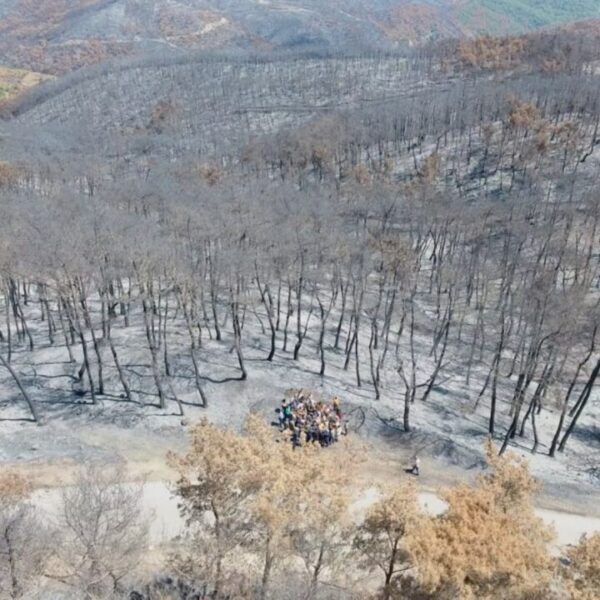Syria is ravaged by a conflict that has inflicted deep wounds on its environment. The soils and waters, contaminated by toxic residues from war weapons, threaten agriculture and public health. The forests, decimated by illegal logging and fires, have seen a part of their biodiversity disappear. The collapse of waste management infrastructures worsens sanitary conditions, exposing populations to increased risks.
Since 2011, Syria has been the scene of a conflict that has caused hundreds of thousands of deaths and displaced millions of people. The country's infrastructure is in ruins, and the economy is drained.
The consequences of this war are not limited to human losses and material destruction. The environment has also suffered considerable damage. The soils and waters are contaminated by weapon residues and war debris, which are dangerous for agriculture and public health. The forests, decimated particularly due to illegal logging for firewood, are experiencing a significant loss of biodiversity.
These environmental degradations constitute an insidious and lasting ecological crisis, and a threat to the health of populations and the future of the country. The international community must take this into account in post-conflict reconstruction and support efforts to restore the ecological balance of Syria.
Soil and Water Pollution
The use of explosive weapons in Syria has caused significant contamination of soils and waters by harmful substances such as heavy metals and fuels. These pollutants have serious repercussions on agriculture and public health. For example, during the battle of Wadi Barada between December 2016 and January 2017, clashes damaged the Ain al-Fijah spring, depriving the capital of its main source of drinking water. This interruption exposed millions of people to increased health risks.
Moreover, soil contamination also affects Syrian agriculture. Damaged lands see their fertility decrease, compromising harvests and food security for local populations. Farmers are forced to cultivate on depleted soils, resulting in a decline in agricultural production and their incomes.
“ The lands today produce less than 30% of what is normal. And with the shortage, we also have to pay for water supply,” testifies Ahmad, a farmer from the Idleb region. “My wife and my three children can barely eat and drink from our work.”
Deforestation and Loss of Biodiversity
The war in Syria has led to mass deforestation, exacerbating the environmental and socio-economic challenges of the country. Forested areas have been destroyed by fires and illegal logging, often to meet the firewood needs of populations facing fuel shortages and prolonged power outages. According to the NGO Global Forest Watch, Syria has lost 26% of its tree cover since 2000, a trend worsened by the conflict that began in 2011.
Provinces like Latakia, Homs, and Aleppo have particularly suffered, losing more than 36% of their forested areas since the beginning of the conflict.
This wave of deforestation affects biodiversity, climate resilience, and the livelihoods of local communities. The forests, which housed diverse flora and fauna, see their ecosystem threatened. This compromises essential ecosystem services such as climate regulation and soil protection against erosion.
The reduction of forest cover also diminishes communities' ability to adapt to climate change. It further increases their vulnerability to extreme weather events. As for local populations dependent on forest resources for their livelihoods, they find themselves deprived of sources of income and essential materials. This obviously exacerbates their economic precariousness.
“ Once, a good part of our diet depended on our ecosystem: Malva parviflora, Eryngium, Hibiscus syriacus, Orchis mascula… Today we hardly find these plants that were free sources of food,” observes Alya, a housewife in Tartous.
Waste Management Infrastructures
Before the conflict, waste management was already deficient, with about 80% of domestic solid waste disposed of in open dumps, contributing to water, soil, and air pollution. But the collapse of waste management infrastructures in Syria has further exacerbated these environmental and health issues. The accumulation of untreated waste indeed increases unsanitary conditions and promotes the spread of diseases.
“ Once our neighborhood was one of the most upscale in Homs. Today we are drowning in waste. Our neighbors have organized a collection system to avoid health problems and odors, but the bins at the neighborhood's entrance remain overflowing,” laments Samir, who has gone from a chic neighborhood in Homs to a slum overrun with waste.
Rehabilitation Perspectives
The rehabilitation of the Syrian environment, after more than a decade of war, therefore requires a concerted and sustainable approach, with the involvement of local authorities and international actors. Reforestation, particularly in northern and western Syria, is essential to restore biodiversity and limit desertification. The restoration of agricultural soils, destroyed by bombings and pollution, is crucial to revitalize food production. Effective waste management, with collection and treatment systems, is also essential to protect public health. All of this must occur against a backdrop of political cooperation and international financial support, which are essential.

Featured Photo: 36% of forested areas have disappeared since the beginning of the conflict © Sana
